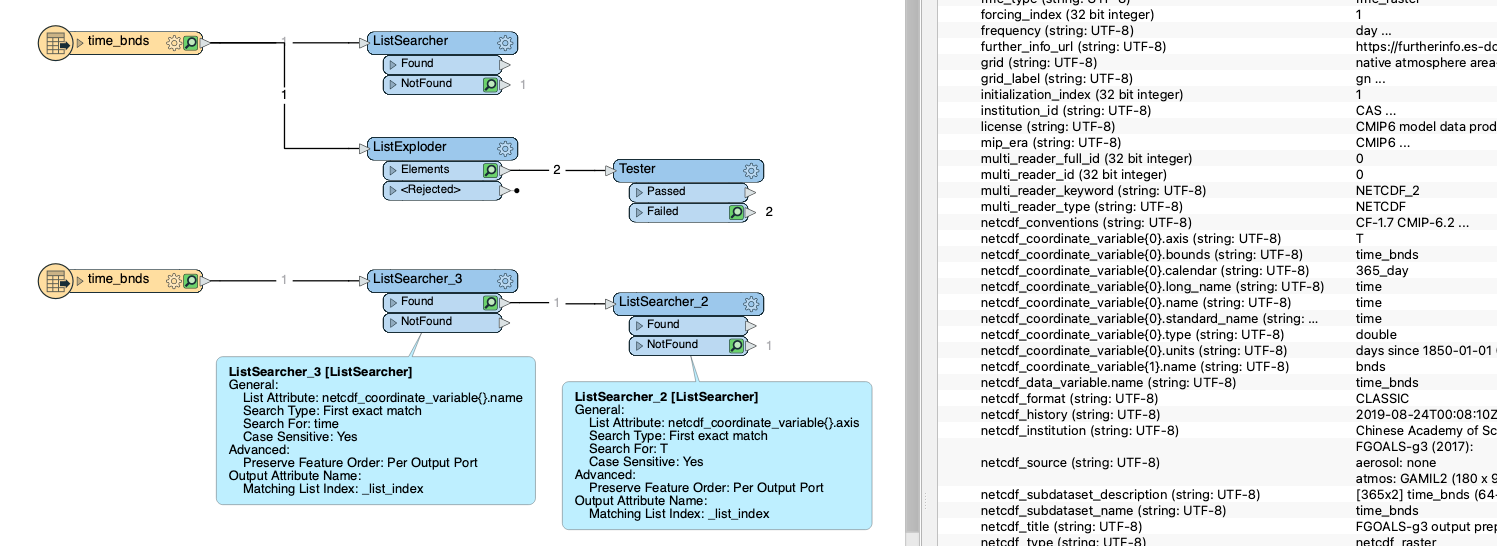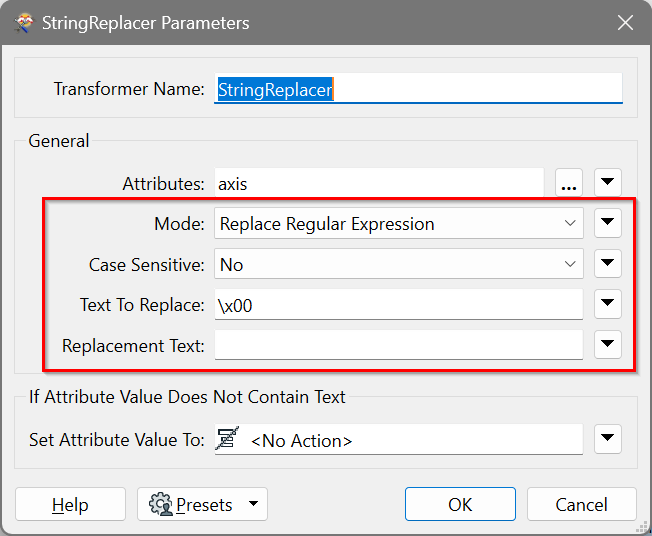I'm encountering an issue reading NetCDF files I got from here:
When attempting to use a ListSearcher to search the "netcdf_coordinate_variable" list for an element with axis = T, I get no matches, even though its the first element.
I also get no results using a ListExploder and a Tester to test the axis attribute.
In fact the only attribute from the list that will match is "name".
Looking at the list there are 2 elements, and the second element only has a "name" attribute and no others.
I could see why this might trip up the ListSearcher, but I don't understand why the ListExploder + Tester method also fails to match?
This is with FME 2022.1.2 on MacOS. I've attached a workspace (data linked above) and a screen shot showing the list has an element with an axis value of "T".







